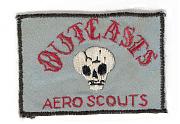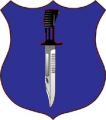I think it was more likely due to an assumption that an insurgency would not arise and a recognition among political leaders that 90% approval ratings don't last forever and if we were going to implement the long-standing policy of regime change in Iraq, then there was a narrow window of opportunity to leverage public support and get our foot in the door. Like any other government program, a large war is easier to start than to end.
I'm not being a wiseguy when I suggest this, but some people are just jerks. I know a lot of people who served during Vietnam - my father, friends of his, uncles, et cetera. ALL were draftees. I've never heard one word out of them regarding anything bad from Vietnam. They did their time and then got out. It is not that they're repressing anything. They simply have the same attitudes that we associate with WWII vets - they did their job, went home, and got on with their lives. They weren't raised with a victim mentality. Some people were. Those people generally grow up to be jerks.







 I didn't realize there was such a difference between Vietnam and 9/11, that Vietnam caused such conflict between fellow Americans, whereas 9/11 was cathartic. Anyway, thank you for sharing with me the history of the military, its incentive based aspects as an organization, and how different types of people adjust to civilian life after conflict. One of you said that a lot of the protestors during the Vietnam war went back to their regular lives, but a lot of them never gave up protesting. They seem to have become the liberal professors today in academia.
I didn't realize there was such a difference between Vietnam and 9/11, that Vietnam caused such conflict between fellow Americans, whereas 9/11 was cathartic. Anyway, thank you for sharing with me the history of the military, its incentive based aspects as an organization, and how different types of people adjust to civilian life after conflict. One of you said that a lot of the protestors during the Vietnam war went back to their regular lives, but a lot of them never gave up protesting. They seem to have become the liberal professors today in academia. 





Bookmarks